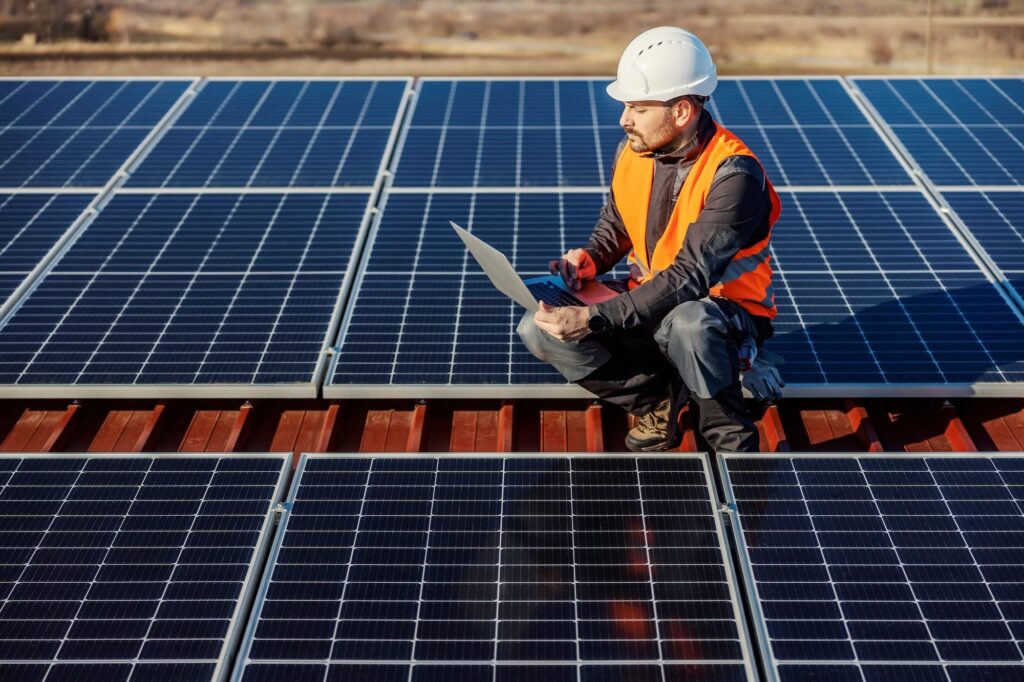Equity investors seek stability
Analysts suggest domestic stocks
Defensive sectors prudent
In a month of wild market swings, Gulf equity investors have felt panic, trepidation, bewilderment and more. With further volatility probable, experts say a prudent strategy is to focus on defensive sectors less exposed to the global economy.
Gulf bourses tumbled in early April, along with the US dollar and oil prices, after President Donald Trump imposed sweeping tariffs and reiterated his aim of devaluing the world’s de facto reserve currency.
Dubai’s index has returned to positive territory for 2025, although it is 3.5 percent below February’s 17-year peak. Saudi Arabia’s measure tumbled to a 16-month low, subsequently rebounding to trim its year-to-date losses to 2.4 percent. Other Gulf benchmarks have similarly fluctuated between steep losses and sudden rebounds.
“In the current environment, regional equity investors may favour companies with a more domestic focus, perhaps to limit their portfolio exposure to global uncertainty and volatility,” said Akber Khan, acting chief executive officer of Al Rayan Investment in Doha.
Utilities and telecom companies with purely domestic operations are among those that meet these criteria, although whether a significant and sustained decline in oil prices will ultimately impact domestic economic activity – and therefore aggregate demand – is another question.
From mid-January, the dollar is down 11 percent against each of the euro (to its lowest in more than three years), the Japanese yen (its lowest since late 2023) and the Swiss franc, and 9 percent versus the British pound.
“The pace of the dollar’s decline has been somewhat disorderly – usually a drop of this magnitude would take a year or more,” said Rohit Chawdhry, chief investment officer at Dubai’s Cross Alpha and a 20-year veteran in Gulf financial markets. “Notwithstanding temporary rebounds, the longer-term trajectory is likely downwards.”
This will make imports to the dollar-pegged countries more expensive in local currency terms and so is likely to be inflationary.
Consequently, Gulf consumers will probably reduce discretionary spending, Chawdhry said, noting this includes the likes of clothing, electronics, entertainment, leisure and travel. Companies in these sectors may suffer lower revenues and profits.
“As inflation expectations increase, equity investors will prefer companies that are monopolies or near-monopolies, [and] have a defensive model that can pass on a large portion of inflation to the end consumer,” Chawdhry said.
These include utility companies and toll road and carpark operators, he said.
“Companies with stable cash flows, good dividend yields and strong stock liquidity will be likely to attract inflows,” Chawdhry said.
Long-term contracts
Businesses providing services on long-term contracts, such as gas pipelines or oil drillers, which typically work on five- to eight-year horizons, should be a good hedge in an uncertain environment, Chawdhry said.
“Investors should consider the impact of low prices, rising inflation and slower economic growth, plus companies’ exposure to foreign markets. Companies without large exposures to imports or exports and a relatively domestic business model will probably be preferred,” Chawdhry said.
Historically, the dollar and oil prices have been inversely correlated. So, a lower dollar leads to higher crude prices, but with a global economic slowdown widely foreseen oil prices will probably fall further despite the dollar slump. This spells further gloom for the Gulf petrochemicals sector, which has been grappling with multi-decade margin lows due to over-supply and weak demand.
Tourism is an export and the regional industry should benefit from a weaker dollar, but this is unlikely to boost the Gulf’s physical exports which are mostly hydrocarbons.
“Buyers of oil, gas and petrochemicals have low price elasticity,” Khan said. “Importers will gain from a lower bill.”
A weaker dollar also makes Gulf financial and real assets such as property cheaper In non-dollar terms.
“In isolation, a weaker dollar should lead to capital flows into the region regardless of the assets that capital is buying, but investors will also consider several other variables, not only the currency,” Khan said.
Register now: It’s easy and free
AGBI registered members can access even more of our unique analysis and perspective on business and economics in the Middle East.
Why sign uP
Exclusive weekly email from our editor-in-chief
Personalised weekly emails for your preferred industry sectors
Read and download our insight packed white papers
Access to our mobile app
Prioritised access to live events
Already registered? Sign in
I’ll register later



